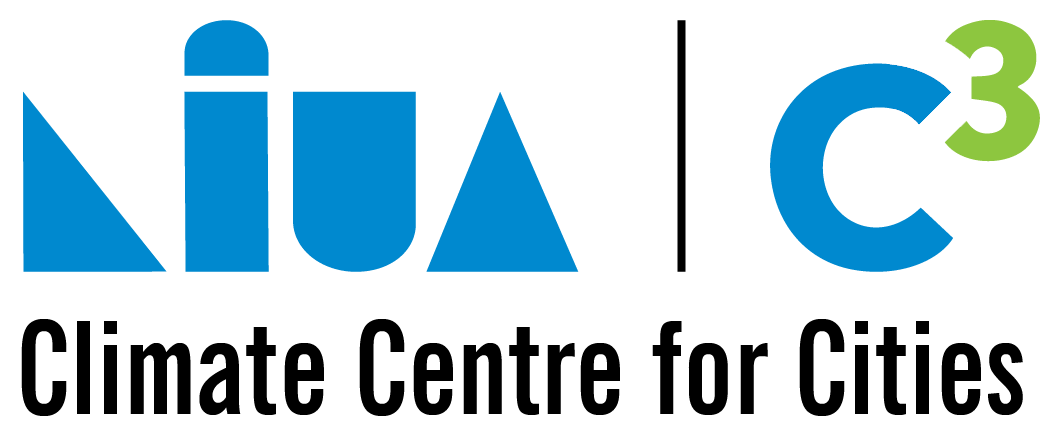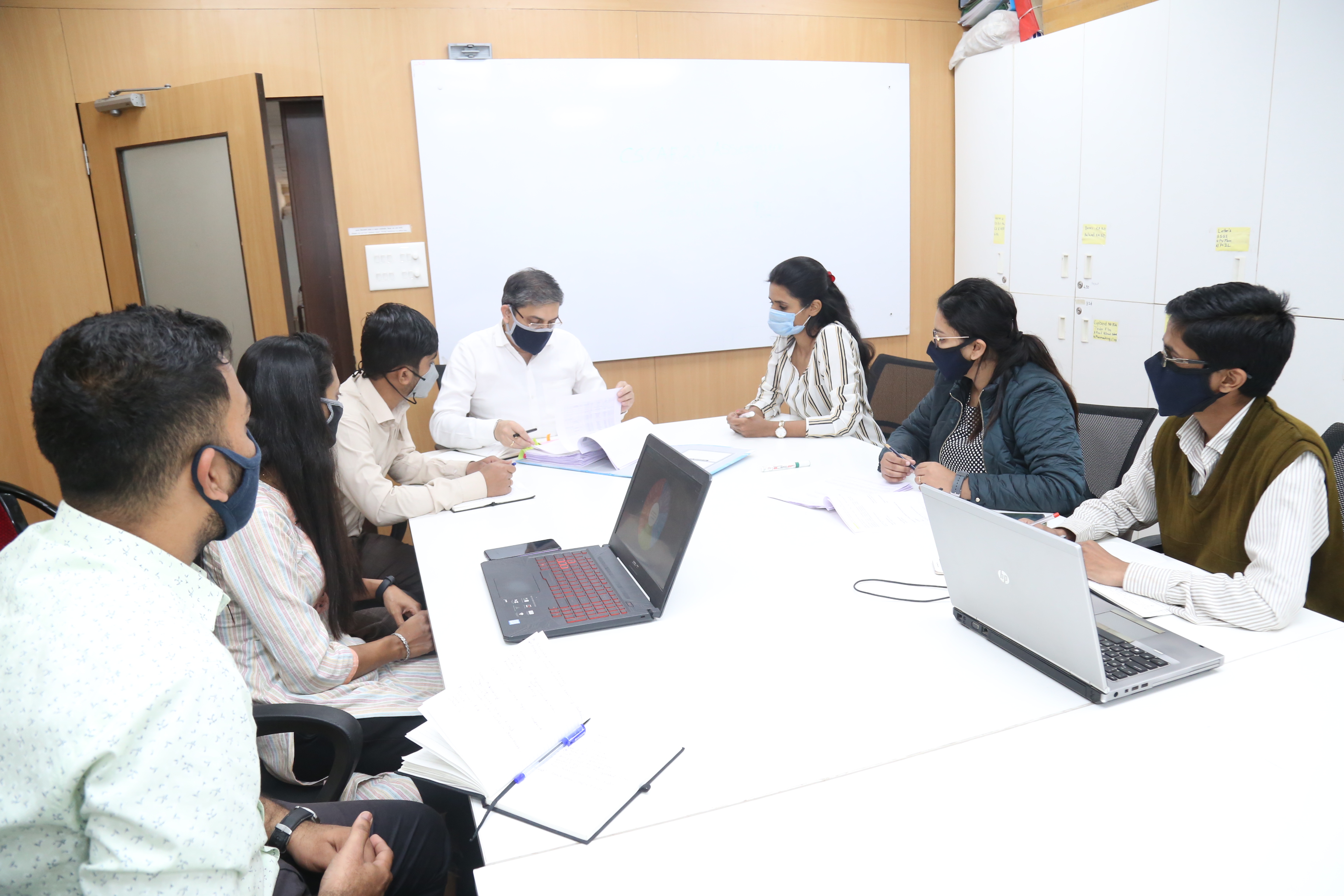State-level Institutionalization for Enhanced Synergy and Mainstreaming of Climate Actions in Indian Cities.
Published On:
Monday, April 5, 2021
Climate Change Challenges and cities
Cities which are the engines of economic growth and potential future habitat for most Indians are crucial to addressing climate change. These are both a contributor and solution to climate change, equally vulnerable and also faces the brunt of its impacts. With only 3% of the total world habitat, urban areas are home to around 55% of world population (UN Report) as on 2018 and further projected to rise to 68% by 2050. Cities are responsible for around 60% of all Greenhouse Gas (GHG) emissions in the world which has significant Climate Change consequences. Over the years, increasingly cities are facing numbers of climate change induced environmental issues and other challenges such as urban flooding due sea level rise, salinity ingression, storm water surges, climate migration, heat waves, infrastructures loss and damage etc. As it is evident, cities which are major contributor to climate change, to a large extent cities hold the key to mitigating GHG emissions and also addressing climate change impacts.
However, cities in India are mostly ill equipped to deal with climate change and address its impacts effectively due to various factors including lack of technical expertise for analysis, planning & implementation, an appropriate institutional mechanical at local level for coordination and synergy, and adequate financial resources to undertake climate actions etc. As a way forward, a State Level Institution will go a long way in mainstreaming climate change consideration both adaptation and mitigation in all development planning and implementation in the states including the urban centres.
Cities and States are responding to climate change impacts guided by national policy, schemes/programs/projects.
Cities and State governments in India are responding to the challenges posed by climate change in urban areas. They are engaging with national ministries under various policies and programs to mitigate GHG emissions, build their adaptive capacities, enhance their resilience and particularly taking into consideration the interest of the most vulnerable sections and sectors in order to make urban habitats most inclusive, and safe for their citizen.
One of the major climate action in the urban sector is the National Mission on Sustainable Habitat (NMSH), being implemented by the Ministry of Housing and Urban Affairs (MoHUA). The NMSH, among other, promotes and supports the development of renewable energy, build climate resilient infrastructures, and adoption of energy efficient technologies in cities.. Another, initiative is the Smart Cities Mission which envisage application of smart solutions to improve city infrastructure and services and also derive adaptation and mitigation co-benefits. Further, the Climate Smart Cities Assessment Framework (CSCAF) of MoHUA is yet another initiative which was launched in February 2019 for 100 Smart Cities as a guiding framework for cities towards climate actions. CSCAF serves as a tool for cities to assess their current climate situation and provides a roadmap for cities to adopt and implement relevant climate actions. Further, some of the other initiatives of MoHUA are the Swachh Bharat Mission, Atal Mission for Rejuvenation and Urban Transformation (AMRUT) and Metro rail projects which could provide climate benefits.
Constraints/challenges in developing effective climate plan, implementation and monitoring
As relevant and ambitious as these actions are to the cities for addressing climate change, however practical ground implementation are plagued by various constraints. Some of the major constraints are the poor institutional and governance structure, lack of proper coordination among different stakeholders, and poor understanding in terms of impacts and extend of climate change, lack of adequate financial, human and technological resources etc.
State level institution for effective implementation of climate actions in the cities
In the light of existing challenges which impede successful implementation of climate change actions in the cities, it is imperative to put in place a strong functional institutional mechanism to facilitate integrated synergetic climate action planning, implementation and monitoring in the cities. Following the launch of India’s National Action Plan on Climate Change, many states, established climate change cell/centre to assist in the preparation of State Action Plan on Climate Change and monitoring its progress. However, very few of these centres are functioning with proper institutional capacity and budgetary allocation while the vast majority of the states do not even have such climate change centre. In this context, identifying existing institutions, analyse their institutional capacity, expertise, financial & human resources etc. may be a step in the right direction to assess the need for establishing state level institution for ensuring climate actions.
However, the question of how these institutions fit in with any existing national institutional mechanism with the states on climate change must be deliberated upon to avoid duplication and enhance synergy. Jurisdiction of such institution must align with and its relationship clearly set out vis-à-vis nodal Ministry leading overall climate policy and actions in the country.
Assumptions for mainstreaming Climate actions in the States
The overarching goal of a State Level Institution is the long term mainstreaming of climate actions in all developmental planning and implementation in the states. In order for such institutions to be fully empowered to discharge their roles, these must be equipped with the essential legal sanction, well-defined mandate, financial autonomy and supported with a pool of expertise drawn from diverse background inter alia; State Government officials, Research Institutions/Think Tank, Private sectors, Civil Societies, etc. The following section presents some of the assumptions considered in this article for the successful institutionalization of climate actions in the states.
One of the assumptions for successful mainstreaming of climate actions in the states including in urban areas is the establishment of an appropriate institutional structure/centre at the State level with well-defined mandate and functions.
Another assumption is that major stakeholders; State Government Departments and Urban Local Bodies (UBLs) attain technical expertise in assessment & analysis, climate action planning and implementation. These stakeholders including ULBs avail capacity building trainings from various Government programs including that of MoHUA’s Smart Cities Missions and Climate Smart Assessment Framework etc. Further, city governments collaborate with technical institutes and private organizations with innovative technical expertise to plan and pilot high impact climate actions.
The third assumption is that the major stakeholders attain financial sufficiency allowing them to discharge their functions effectively. They avail financial resources from Central Government sponsored schemes/programs Atma Nirbhar Bharat, Smart Cities Missions of MoHUA, National Missions under the National Action Plan on Climate Change, and National Adaptation Fund of MoEFCC etc. They also leverage their revenue generation with innovative financial mechanism including through Public Private Partnership. The ULBs improve their percentage of tax collection while making effort increase their revenue base. Besides, in order to supplement their financial resource, they also collaborate with private entities that work with city governments’ on pilot climate change projects.
Process for institutionalizing the State Level Institution
One of the first probable steps toward creating the institution/centre at the state level is to secure an initial commitment from the State Government regarding the need for such an institution that will provide leadership and coordination on climate actions in the state. This will help kick start the process for institutionalizing the centre. In this regard, a formal announcement from the Chief Secretary showing the intent of the State Government in creating such an institutional structure.
The second step could be formation of an ad hoc advisory committee under the leadership of the Chief Secretary that will steer the initial process and support in on boarding of all stakeholders in the state. The advisory committee will further help consensus building, guide in identifying the Nodal Department/Agency which could host the secretariat of the centre as well as serve the role of coordinating among all the stakeholder.
The third step is in deciding the nature, jurisdiction, structure and functions of the centre in consultation with all the stakeholders.
The fourth step is in operationalization of the centre that involve allocation of adequate budgetary provision, involvement of a pool of expertise drawn from diverse background inter alia; State Government officials, city officials, Research Institutions/Think Tank, Private sectors, Civil Societies, etc., and delegation of responsibility to all functionaries etc.
Functions of the State Level Institution
Such an institutional structure, in the state will contribute towards policy direction, and will be responsible for strategic planning, ensure mainstreaming of climate change aspects in city development plan. Some of the major potential roles of these institutions are but not limited to as outline in the following:
-
Guide the overall consultation process of designing comprehensive climate action plans and guide its effective implementations in the States.
-
Promote decentralized participatory planning and implementation of climate action, thereby enabling involvement of the local communities in climate planning processes.
-
Facilitate coordination among various Departments/Institutions/agencies for enhanced synergy of actions and avoid duplication.
-
Forge partnerships across multiple institutions, including from both the private and public sector
-
Facilitate research studies, serve as knowledge repository and provide scientific and technological inputs.
-
Mobilization of additional resources for implementation of climate actions
-
Sustainability of climate change implementation, replication and up-scaling of climate actions
Views expressed here are the author’s own.
Contact Us
1st and 2nd Floor, National Institute of Urban Affairs
India Habitat Centre Lodhi Road New Delhi-110003
Please Call Help Desk at 011-411-86699
Monday - Friday, 9:00 AM - 5:00 PM
Please write to us at c-cube@niua.org







Post a Comment